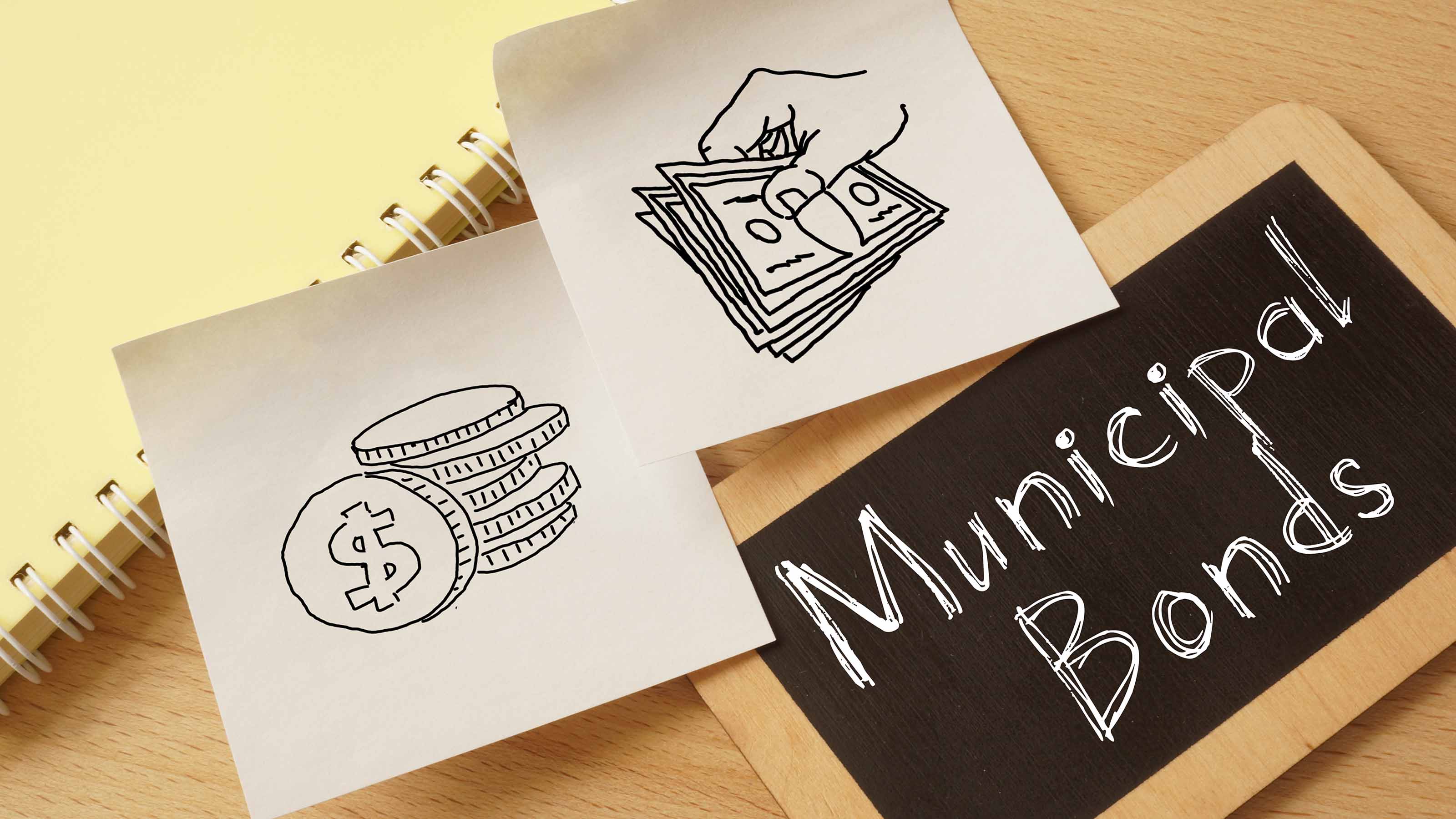Bonds Are Safer Than They Look
Yes, there’s plenty of bad news: credit downgrades, bond defaults and dividend cuts. The solution is to find workarounds.


Profit and prosper with the best of Kiplinger's advice on investing, taxes, retirement, personal finance and much more. Delivered daily. Enter your email in the box and click Sign Me Up.
You are now subscribed
Your newsletter sign-up was successful
Want to add more newsletters?

Delivered daily
Kiplinger Today
Profit and prosper with the best of Kiplinger's advice on investing, taxes, retirement, personal finance and much more delivered daily. Smart money moves start here.

Sent five days a week
Kiplinger A Step Ahead
Get practical help to make better financial decisions in your everyday life, from spending to savings on top deals.

Delivered daily
Kiplinger Closing Bell
Get today's biggest financial and investing headlines delivered to your inbox every day the U.S. stock market is open.

Sent twice a week
Kiplinger Adviser Intel
Financial pros across the country share best practices and fresh tactics to preserve and grow your wealth.

Delivered weekly
Kiplinger Tax Tips
Trim your federal and state tax bills with practical tax-planning and tax-cutting strategies.

Sent twice a week
Kiplinger Retirement Tips
Your twice-a-week guide to planning and enjoying a financially secure and richly rewarding retirement

Sent bimonthly.
Kiplinger Adviser Angle
Insights for advisers, wealth managers and other financial professionals.

Sent twice a week
Kiplinger Investing Weekly
Your twice-a-week roundup of promising stocks, funds, companies and industries you should consider, ones you should avoid, and why.

Sent weekly for six weeks
Kiplinger Invest for Retirement
Your step-by-step six-part series on how to invest for retirement, from devising a successful strategy to exactly which investments to choose.
During a tumultuous past few months, financial markets somehow kept their bearings. Skeptics insist this is a mirage and that an echo of March’s crash is nigh. I contend the run of positive returns is legitimate, but my bullishness is not unrestrained. There is no denying the disruptions from 11% unemployment, travel bans and the potential dangers of attending school or using public transportation.
But my job is to interpret the investment scene and guide you to secure interest and dividends. (By the way, to all who asked where I’ve been the past couple of months: I took a break to contemplate retirement because I turned 65 but decided to carry on.) Although we’re seeing more credit downgrades, bond defaults, and dividend cuts and suspensions than before the pandemic, these impairments are not so widespread that you cannot work around them. For every supine sector, one or two more are in full recovery or at least steady, and they beat zero yields from the bank. My take on key sources of income:
Dividends. Since March, cuts or suspensions hit daily. When Annaly Capital Management (symbol, NLY)—a high-yielding security whose sole appeal is dividends—cut its payout by only 12%, the shares rallied. Aside from mismanaged outfits such as Boeing and Wells Fargo, and outside of oil and gas, travel, and retail, painful cuts are rare despite the drastic economic contraction. Even at 27,000, the Dow Jones industrial average still yields 2.4%. Yes, raises are shrinking as earnings and growth prospects wither. ADP, Caterpillar (CAT), Illinois Tool Works (ITW), Sherwin Williams (SHW) and other spectacular 2019 dividend boosters will not repeat those leaps in 2020 and 2021. But you will get some fair incremental raises. Dividend-growth strategies still make sense—but pass on Big Oil.
From just $107.88 $24.99 for Kiplinger Personal Finance
Become a smarter, better informed investor. Subscribe from just $107.88 $24.99, plus get up to 4 Special Issues

Sign up for Kiplinger’s Free Newsletters
Profit and prosper with the best of expert advice on investing, taxes, retirement, personal finance and more - straight to your e-mail.
Profit and prosper with the best of expert advice - straight to your e-mail.
High-quality corporate bonds. Despite a bulge of new issues as the pandemic spread and companies went crazy raising cash, demand for bonds still overwhelms supply. Combined with low and sticky interest rates, this is an ongoing bonanza for segments such as A-rated to triple-B-rated U.S. corporates. The S&P index of BBBs has a total return of 21% since its March bottom and 8.6% for the year to date. The yield spread between BBBs and Treasuries in early August stood at 1.8 percentage points. That gap is wider than it has been almost continuously from 2016 until early 2020, signaling more room for appreciation if you either own a good bond fund (or two) or hold individual bonds in stable industries with coupons of 5% or 6%.
Municipals. There are problems implied by shortfalls in local tax revenue and falling big-city property values and office rents, as well as the cancellation of conventions and sporting events. But heavy demand, the absence of valuable personal tax breaks and the promise of help if needed from the Federal Reserve are all strong supports. Just apply the normal rules: Avoid bonds from poor or shrinking jurisdictions; lean toward debt for essential services, such as schools and water and sewer lines; and either buy bonds singly or use actively managed funds instead of index-based exchange-traded funds.
Real estate and utilities. Property real estate investment trusts come in 16 subsectors, and the carnage is still concentrated in New York City offices and in retail and lodging. You’re getting paid everywhere else, helped by REITs refinancing their debt at lower rates. Utilities are weak because power demand is down. Plus, the group entered the year touching the sky. But most dividends are secure. And, as we know from previous slumps, income is an antidote to the worst damage.
Profit and prosper with the best of Kiplinger's advice on investing, taxes, retirement, personal finance and much more. Delivered daily. Enter your email in the box and click Sign Me Up.

Kosnett is the editor of Kiplinger Investing for Income and writes the "Cash in Hand" column for Kiplinger Personal Finance. He is an income-investing expert who covers bonds, real estate investment trusts, oil and gas income deals, dividend stocks and anything else that pays interest and dividends. He joined Kiplinger in 1981 after six years in newspapers, including the Baltimore Sun. He is a 1976 journalism graduate from the Medill School at Northwestern University and completed an executive program at the Carnegie-Mellon University business school in 1978.
-
 Nasdaq Leads a Rocky Risk-On Rally: Stock Market Today
Nasdaq Leads a Rocky Risk-On Rally: Stock Market TodayAnother worrying bout of late-session weakness couldn't take down the main equity indexes on Wednesday.
-
 Quiz: Do You Know How to Avoid the "Medigap Trap?"
Quiz: Do You Know How to Avoid the "Medigap Trap?"Quiz Test your basic knowledge of the "Medigap Trap" in our quick quiz.
-
 5 Top Tax-Efficient Mutual Funds for Smarter Investing
5 Top Tax-Efficient Mutual Funds for Smarter InvestingMutual funds are many things, but "tax-friendly" usually isn't one of them. These are the exceptions.
-
 What Fed Rate Cuts Mean For Fixed-Income Investors
What Fed Rate Cuts Mean For Fixed-Income InvestorsThe Fed's rate-cutting campaign has the fixed-income market set for an encore of Q4 2024.
-
 The Most Tax-Friendly States for Investing in 2025 (Hint: There Are Two)
The Most Tax-Friendly States for Investing in 2025 (Hint: There Are Two)State Taxes Living in one of these places could lower your 2025 investment taxes — especially if you invest in real estate.
-
 The Final Countdown for Retirees with Investment Income
The Final Countdown for Retirees with Investment IncomeRetirement Tax Don’t assume Social Security withholding is enough. Some retirement income may require a quarterly estimated tax payment by the September 15 deadline.
-
 Dividends Are in a Rut
Dividends Are in a RutDividends may be going through a rough patch, but income investors should exercise patience.
-
 Why Investors Needn't Worry About U.S. Credit Downgrade
Why Investors Needn't Worry About U.S. Credit DowngradeFitch Ratings The United States saw its credit rating downgraded for just the second time in history, but experts aren't worried about the long-term damage to stocks.
-
 Municipal Bonds Stand Firm
Municipal Bonds Stand FirmIf you have the cash to invest, municipal bonds are a worthy alternative to CDs or Treasuries – even as they stare down credit-market Armageddon.
-
 High Yields From High-Rate Lenders
High Yields From High-Rate LendersInvestors seeking out high yields can find them in high-rate lenders, non-bank lenders and a few financial REITs.
-
 Time to Consider Foreign Bonds
Time to Consider Foreign BondsIn 2023, foreign bonds deserve a place on the fringes of a total-return-oriented fixed-income portfolio.